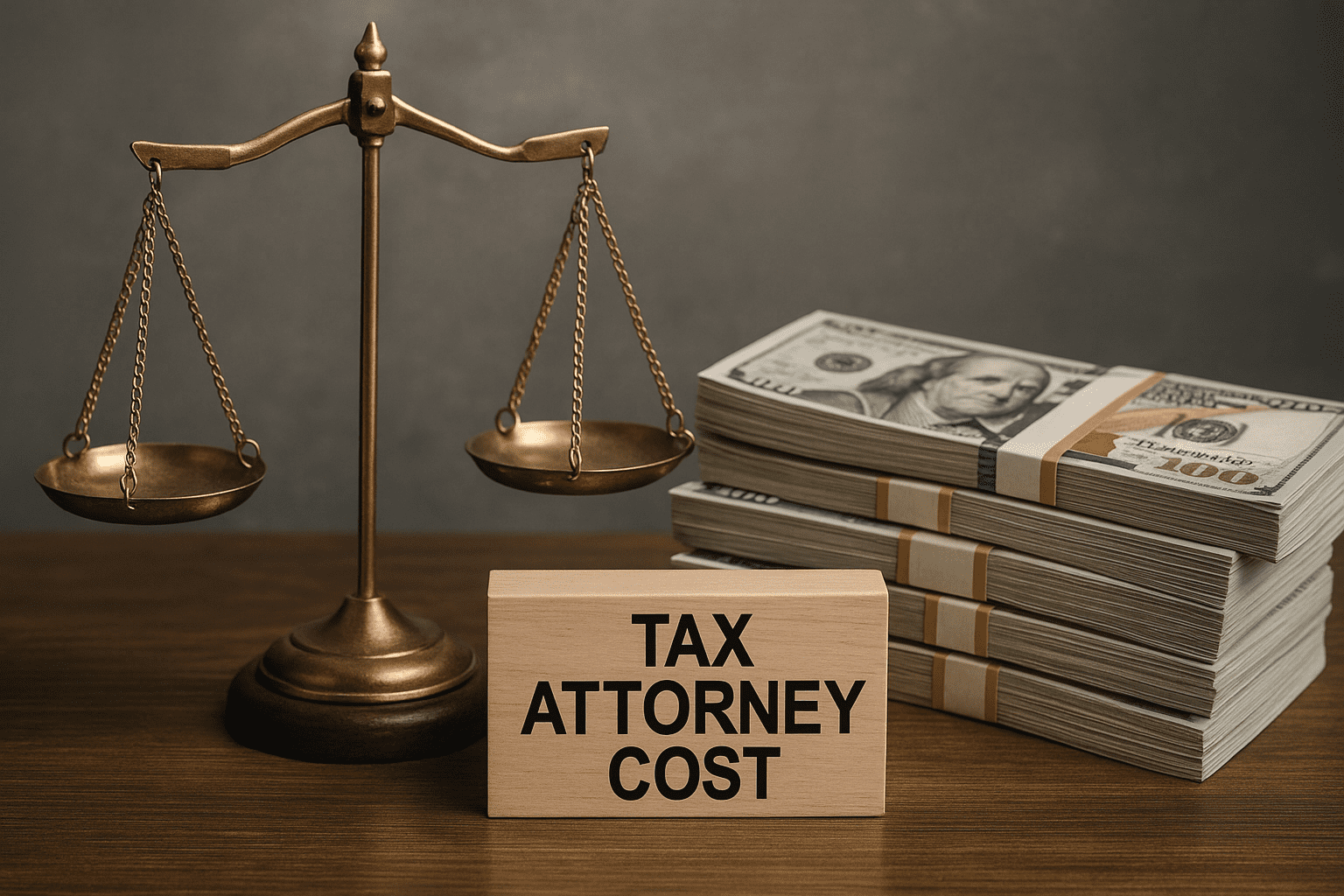When financial disputes or IRS issues appear on the horizon, many business owners and individuals begin asking one key question: How much does a tax attorney cost? The answer is not always simple because fees vary mainly based on location, complexity, and the nature of your tax concerns. However, understanding the factors that shape pricing, along with what you actually receive for your money, is essential before making such an investment.
Why Tax Attorneys Carry Distinct Value
Unlike a Certified Public Accountant (CPA), who primarily focuses on preparing and reviewing tax filings, a tax attorney has legal authority to represent clients in disputes, litigation, and negotiations with the IRS or state authorities. This includes specialized areas like attorney business tax issues, attorney income tax litigation, or even property tax lawyer consultations.
The distinction between a CPA or tax attorney becomes clear when legal exposure is on the line. For audits, tax liens, or debt settlements, only an attorney can provide both tax knowledge and legal defense.
Cost Structures You Should Expect
So, how much does a tax attorney cost in practical terms? Attorneys generally follow one of three common billing methods:
1- Hourly Rate
Most tax attorneys charge between $200 to $600 per hour. Senior attorneys in large metropolitan areas may exceed $600 per hour, particularly when handling IRS litigation or international tax issues.
2- Flat Fee
For more predictable matters, such as filing an appeal or preparing specific documents, some attorneys set a flat fee. These can range from $1,000 to $5,000, depending on scope.
3- Retainer Model
Businesses facing ongoing tax concerns may opt for a retainer. A retainer might begin at $3,000 to $10,000 upfront, which the attorney draws from as they work.
The tax attorney vs CPA cost comparison often shows that while CPAs are less expensive for routine filings, attorneys bring greater protection for high-stakes disputes, making the extra cost a safeguard rather than just a line item.

Situations That Influence Price
The cost to hire a tax attorney for IRS audit support will almost always exceed the price of basic filing assistance. The more complex your issue, the higher the cost. Here are a few examples:
- IRS Audits or Appeals: Representation may cost you anywhere between a couple of grand to north of $7,000, depending on the length and depth of the audit.
- Tax Debt Negotiations: Legal help for debt settlements may cost between $3,500 and $10,000, though the savings achieved often outweigh the expense.
- Business Tax Litigation: Cases involving payroll tax disputes or corporate income tax issues can rise well beyond $15,000, especially if they go to court.
For small businesses, these numbers might sound intimidating, but remember that failing to secure representation can result in penalties or settlements far higher. The IRS reported in 2022 that a significant portion of about $606 billion in back taxes remained uncollected; much of it due to disputes without strong legal defense.
Affordable Tax Attorney Services
Not every tax case demands top-dollar fees. Some attorneys market affordable tax attorney services by offering limited-scope packages, payment plans, or hybrid CPA-attorney partnerships. For instance, you may hire a CPA for preparation while an attorney only steps in for legal defense, helping you control costs without sacrificing quality.
The key lies in transparency. Always request a written estimate before signing an agreement, and don’t hesitate to ask about whether a flat fee might apply to your particular situation or not.
How to Budget for Tax Legal Expenses
When weighing how much does a tax attorney cost, many individuals overlook the importance of budgeting correctly. Treat these legal expenses as risk management, not just spending. Practical steps include:
- Setting aside funds during quarterly tax planning.
- Exploring financing options for larger legal bills.
- Allocating part of business reserves for attorney business tax consultations.
By viewing the cost to hire a tax attorney for an IRS audit or litigation as an investment in stability, you protect your financial foundation from erosion.
Is a Tax Attorney Worth the Cost?
This question comes up often: Is a tax attorney worth the cost? The answer depends on the size of your liability and the level of risk.
- If you owe under $5,000 and have no legal complications, a CPA might suffice.
- If your liabilities exceed $25,000 or involve multiple tax years, the investment in an attorney can prevent exponential losses.
- For business owners, the stakes are even higher, since mistakes affect payroll, property assessments, and compliance obligations.
Consider also the emotional cost of tax disputes. Having an attorney manage communications with the IRS or state tax board removes stress, allowing you to focus more on running your business or managing your household finances.
State and Local Nuances in Tax Law
Another factor influencing cost is jurisdiction. Some states have more aggressive enforcement policies than others and navigating state vs local taxes for businesses may require additional legal hours. In places with complex property or sales tax systems, such as California or New York, the business property tax assessment in Texas can feel relatively straightforward, but Texas still has strict enforcement when taxes go unpaid.
This is where specialized attorneys who understand both state-level and federal requirements bring additional value.
The Hidden Costs of Not Hiring an Attorney
While the upfront bill may feel steep, skipping representation can cost far more in the long run. Consider these risks:
- Accruing tax penalties for businesses or individuals without proper defense.
- Entering a tax debt settlement without understanding its full implications.
- Failing to identify legitimate tax deductions for businesses that a legal professional would have flagged.
The IRS charges penalties that can climb as high as 25% of unpaid taxes, not including compounding interest. Compare this to the average tax debt settlement costs with legal help, and the trade-off becomes easier to justify.
Practical Steps to Follow Before Hiring
Before signing a contract, here are some measures to keep the cost reasonable:
- Use a Texas company search or state bar database to verify credentials.
- Ask for references and prior outcomes in similar tax disputes.
- Discuss whether partial services from both a CPA and and attorney could reduce fees.
- Clarify communication frequency so you don’t incur unnecessary billable hours.
These steps help you get both competence and value.
Summing Up
When weighing how much does a tax attorney cost, the answer is best viewed as a spectrum shaped by your specific needs. Hourly rates typically fall between $200 and $500, flat fees for smaller matters average $1,000 to $5,000, and complex litigation can exceed $15,000. Whether you’re handling attorney income tax disputes, a property tax lawyer case, or simply need guidance during an IRS audit, the expense must be measured against the risk of going without representation.
Legal expertise protects both finances and peace of mind, and for many, that security is well worth the cost.

